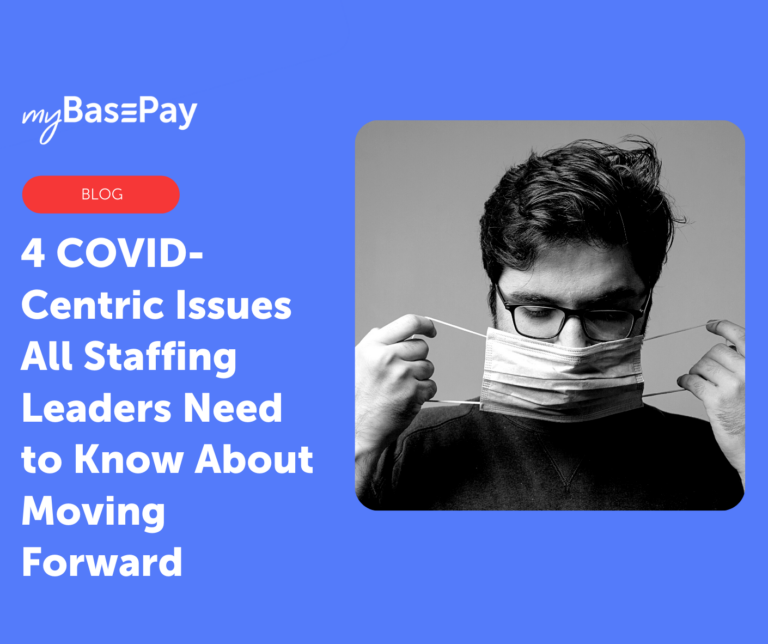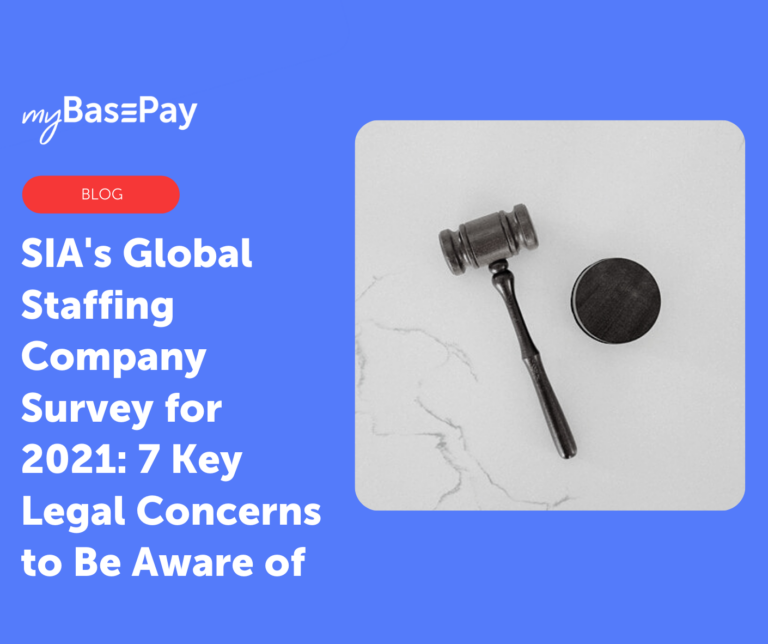6 Of The Most Pressing Legal Issues for Staffing Firms In 2022
The staffing industry has always needed to carefully navigate a wide range of legal issues, and that has never been more true than today. Legislative updates for contingent workers are far from the only pressing legal issues that staffing professionals must be mindful of in today’s work environment.
By giving key legal concerns the attention and care they deserve, staffing firms and their clients can ensure proper compliance in the months ahead.
1. The ‘Return’ to the Office
Many organizations have already begun the process of returning to their normal, in-person operations in the wake of the COVID-19 pandemic. However, many offices continue to use a hybrid model that mixes in-person and remote work, while others are allowing many workers to continue working remotely indefinitely.
Different organizations and states are approaching the return to the office differently. Some businesses are requiring that all employees obtain a COVID-19 vaccination, regardless of state requirements.
At the same time, many states that had stricter restrictions (such as Oregon) are beginning to lift vaccine requirements and other mandates affecting in-office work. Actual regulatory status can vary significantly, and will require ongoing monitoring in the weeks and months ahead.
2. Expanding Employer Regulations
A few proposals that were introduced to Congress in 2020 could have a significant effect on staffing firms if passed into law. The Worker Flexibility and Small Business Protection Act of 2020 and Restoring Worker Power Act of 2020 are especially focused on the rights of temporary or contingent workers.
While no recent actions have been taken regarding either piece of legislation, they are bills that the staffing industry continues to monitor closely, in large part because of the potential costs and operational constraints they would create.
Among other concerns, these bills would mandate equal pay for employees and contract workers, ban non-compete agreements and increase the onus on staffing agencies to provide more detailed job, client and pay information before giving a work assignment.
Other recent court cases surrounding worker misclassification are further defining the potential costs and responsibilities that can be incurred by employers. Ensuring proper worker classification is a must for mitigating risk and expenses.
3. Immigration Enforcement
Staffing agencies will often hire thousands of employees during any given year. The completion of I-9 forms — which are required for both citizens and non-citizens — represents an ongoing legal and logistical concern for the industry as a whole.
When I-9 forms are incorrect or missing, the U.S. Immigration and Customs Enforcement agency can subject staffing firms to significant fines. Paperwork violations currently carry a minimum penalty of $237 and a maximum penalty of $2,360.
Staffing firms that knowingly hire, recruit, retain or refer unauthorized non-citizens face even stiffer penalties, which can reach as high as $23,607 by the third offense. E-Verify and the challenges of working with remote employees can further complicate the process of ensuring that I-9 forms are completed correctly. However, staffing firms must make this a priority to avoid costly fines.
4. Cybersecurity
In a time when remote work has become more commonplace than ever, cybersecurity has unsurprisingly also become a major priority for staffing agencies. Staffing firms typically have a wealth of confidential data on employees and candidates. They are also often closely linked to the networks of their clients. A broad swath of personal and financial data makes staffing firms an attractive target to hackers.
Research from IBM reveals that the average data breach costs an organization $4.24 million. In one incident, nearly 50,000 individuals had their personally identifiable information compromised after a staffing firm suffered a ransomware attack.
Security breaches linked to a staffing firm’s cyber security flaws could leave the organization open to litigation from clients or employees who suffered financial loss. Headline-grabbing breaches could also drive away business from the agency.
5. Mandated Leave
State and local laws can offer significant variation in terms of mandated leave. Issues such as whether temporary workers are covered by sick leave regulations, the timing of when employees can begin to accrue and use paid sick leave and the amount of leave employers must provide are just a few common considerations.
Mandated benefits can make it hard for staffing agencies to remain fully up to date on compliance issues when they operate in multiple states. In addition, tracking hours for several individuals performing contingent assignments can become a logistical challenge.
New legislation, such as California’s law that gives workers at businesses with more than 25 employees up to 80 hours of COVID-19-related sick leave, can further complicate the costs and logistics associated with mandated leave.
6. Workplace Safety
Like other businesses, staffing firms have a responsibility to provide a safe work environment. Under current OSHA regulations, staffing agencies are jointly responsible, along with their host employers, for ensuring that temporary workers enjoy a safe work environment. This includes providing adequate training, record keeping and communication of hazards.
Notably, OSHA states that the organization “ … has concerns that some employers may use temporary workers as a way to avoid meeting all their compliance obligations under the OSH Act and other worker protection laws; that temporary workers get placed in a variety of jobs, including the most hazardous jobs; that temporary workers are more vulnerable to workplace safety and health hazards and retaliation than workers in traditional employment relationships; that temporary workers are often not given adequate safety and health training or explanations of their duties by either the temporary staffing agency or the host employer.”
Staffing agencies can expect significant scrutiny from OSHA, and must be diligent in their related responsibilities to avoid potential fines.
Legal Issues Cannot Be Overlooked
At federal, state and local levels, staffing firms must be diligent to ensure that they remain fully compliant with all applicable laws and regulations. As the COVID-19 pandemic demonstrated, world events can result in dramatic and sudden changes to laws for both full-time and contingent workers.
As a turnkey employer of record (EOR), myBasePay offers a reliable contingent workforce solution that helps your organization maintain full compliance with applicable laws and regulations. With dependable compliance, you can mitigate risk and have peace of mind regarding your staffing operations.
Author: Cesar Romero
Cesar is the Head of Marketing at myBasePay, where he’s responsible for overseeing the company’s content marketing, community, and partnerships strategy. He also co-hosts The Ivy Podcast where he interviews executives from Fortune 500 companies on executive leadership. When he’s not helping startups with marketing and community strategy, you can find him paying it forward by serving as a mentor for leading organizations like StartingBloc, Hive, and Global Citizen Year.






